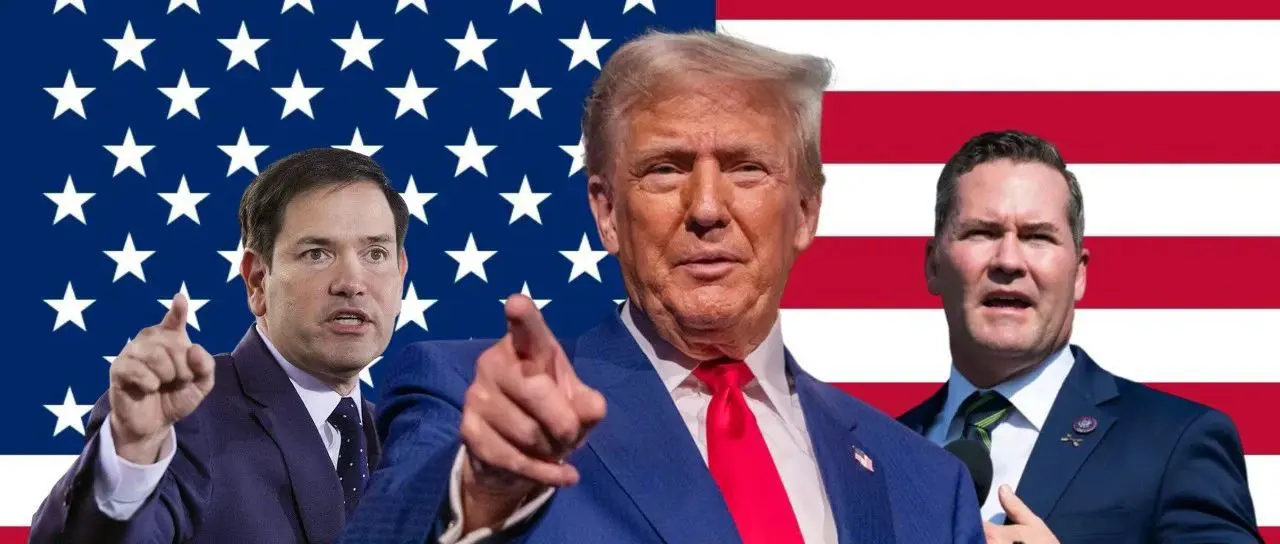Anti-China hawk poised to take charge of US national security and diplomacy, sounding the alarm, prepare for struggle!

The US presidential election has concluded, with the knowledgeable candidate securing a significant advantage in winning the presidency. The focus of attention in recent times has been on who will be included in the "knowledgeable cabinet."
According to foreign media reports, the candidates for the two key positions of Secretary of State and National Security Advisor have emerged, namely Senator Marco Rubio and Congressman Mike Waltz. As is well known, these two individuals are notorious as "anti-China pioneers." It seems that in the second term of the incumbent president, a firm stance on a tough line against China is set to be pursued...
Why are the Secretary of State and the National Security Advisor important? Let's start with the Secretary of State. The Secretary of State is the chief executive of the U.S. Department of State, appointed by the President with the consent of the Senate and accountable to the President. They are the leader of U.S. foreign affairs and one of the President's principal advisors. Traditionally, the Secretary of State is the highest-ranking executive officer after the President and Vice President, sitting first in the order of precedence at Cabinet meetings and fourth in the line of presidential succession, hence also known as the "Chief of Ministers."
Now, let's talk about the National Security Advisor. The National Security Advisor holds dual roles as the "President's Personal Assistant" and the "Manager of the National Security Council," directly appointed by the President without the need for Senate approval, making them one of the President's primary confidants. In the United States, the National Security Advisor is responsible for coordinating all major national security agencies, playing an irreplaceably high role in handling security issues, shaping foreign policies, and conveying strategic signals.
Throughout history, capable Secretaries of State and National Security Advisors have often been adept at managing the competition and cooperation between major powers, seeking broad consensus and compromise on key issues, and playing the role of a coordinator and balancer in significant historical processes. For example, Henry Kissinger, an old friend of the Chinese people, made significant contributions to the normalization of Sino-American relations during his tenure as National Security Advisor. Later, as Secretary of State, he continued to advance the development of Sino-American relations.
Who are Rubio and Walz? Rubio: A Sinophobic politician on China's sanctions list. Rubio is a typical figure of American conservatism and one of the most extreme and radical anti-China politicians within the Republican Party. He is known for his "anti-China stance on every issue," jumping around on various China-related topics in recent years to accumulate political capital. From pushing for the so-called "Taiwan Travel Act" to demanding the strictest investigation in history from the U.S. government; from proposing a ban on U.S. government procurement of Chinese equipment to calling for the expulsion of Confucius Institutes from the U.S.... Rubio has been described by The Washington Post as "one of the loudest critics of China" due to his irrational and frenzied anti-China actions. What's more, he was behind several notorious anti-China bills related to Hong Kong and Xinjiang, blatantly interfering in China's internal affairs and severely damaging Sino-U.S. relations. Due to Rubio's egregious behavior, he was placed on China's sanctions list twice in the year.
Waltz: A China hawk who once served in special forces. Waltz was a member of the U.S. Army's "Green Berets" and participated in the Afghanistan War. During the Bush administration, he served as a defense policy official at the Pentagon. He is now a Congressman from Florida and a key member of the House's "China Task Force," considered one of the most hardline members of Congress on China. Waltz has called for a boycott of the Beijing Winter Olympics in the U.S., causing significant negative impact. Recently, Waltz published a signed article in The Economist magazine, labeling China as America's "biggest rival." He also stated that the U.S. should work to end the conflicts in Ukraine and the Israel-Palestine issue to focus on addressing the "greater threat" posed by China.
How should we view the "King of Understanding" appointing "anti-China vanguards" to key positions? Placing two such tough politicians on China in such crucial positions undoubtedly sends a strong signal of Trump's tough stance on China in his second term. It can be foreseen that during the "King of Understanding" era, the United States will, under the leadership of a group of China hawks, continue to roll out policies to contain and suppress China, all under the banner of so-called "America First." In the near future, the external environment for China's development may become even more complex, and we may face wave after wave of stormy challenges. Facing the possible new round of suppression and containment, we must abandon illusions and prepare for struggle.
On the day of the date, President Xi Jinping sent a congratulatory message to President-elect Trump, stating that history has shown us that cooperation between China and the United States benefits both, while conflict harms both. We certainly hope that the relationship between China and the United States can be primarily one of cooperation, characterized by mutual respect, peaceful coexistence, and win-win cooperation, paving a new path for the correct way for China and the United States to interact in the new era. However, if the main tone of Trump's second term is one of conflict in relations with China, we are not afraid. We will face challenges head-on, and we will see how things unfold!

